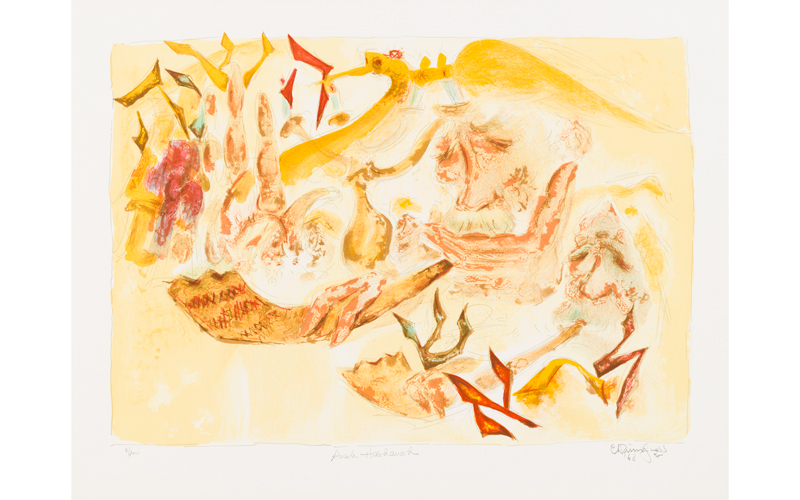- Events & Programs Home
- Calendar
- Accessibility
- Adults
-
Families & Teens
- Families & Teens Home
- 10x10 Teen Art Expo
- Art on the Rise
- Art Together: Art Making for Families with Children Ages 3–5
- Babies Sing with May Festival Minis
- Boy Scouts / Girl Scouts
- CAM Kids Day
- Family Storytime and Gallery Walk
- Family Studio: Art Making for Families with Children Ages 6–12
- Games in the Galleries
- Members-Only Baby Tours
- Public Baby Tours
- REC Reads
- Rosenthal Education Center (REC)
- Saturday Morning Art Class
- See Play Learn Kits
- Summer Camp
- Teen Fest: Zine and Comic Exchange
- RECreate
- Teachers
- Community Outreach
- Fundraisers
- Plan Your Own Event

- Events & Programs Home
- Calendar
- Accessibility
- Adults
-
Families & Teens
- Families & Teens Home
- 10x10 Teen Art Expo
- Art on the Rise
- Art Together: Art Making for Families with Children Ages 3–5
- Babies Sing with May Festival Minis
- Boy Scouts / Girl Scouts
- CAM Kids Day
- Family Storytime and Gallery Walk
- Family Studio: Art Making for Families with Children Ages 6–12
- Games in the Galleries
- Members-Only Baby Tours
- Public Baby Tours
- REC Reads
- Rosenthal Education Center (REC)
- Saturday Morning Art Class
- See Play Learn Kits
- Summer Camp
- Teen Fest: Zine and Comic Exchange
- RECreate
- Teachers
- Community Outreach
- Fundraisers
- Plan Your Own Event
The Jewish Holidays by Chaim Gross
The Jewish Holidays by Chaim Gross
- Home
- Plan Your Visit
- Art
-
Events & Programs
- Events & Programs Home
- Calendar
- Accessibility
- Adults
-
Families & Teens
- Families & Teens Home
- 10x10 Teen Art Expo
- Art on the Rise
- Art Together: Art Making for Families with Children Ages 3–5
- Babies Sing with May Festival Minis
- Boy Scouts / Girl Scouts
- CAM Kids Day
- Family Storytime and Gallery Walk
- Family Studio: Art Making for Families with Children Ages 6–12
- Games in the Galleries
- Members-Only Baby Tours
- Public Baby Tours
- REC Reads
- Rosenthal Education Center (REC)
- Saturday Morning Art Class
- See Play Learn Kits
- Summer Camp
- Teen Fest: Zine and Comic Exchange
- RECreate
- Teachers
- Community Outreach
- Fundraisers
- Plan Your Own Event
- Give & Join
- About
- Tickets
- Calendar
- Exhibitions
- Collections
- Blog
- Shop
- Art
- Exhibitions
- Longing: Painting from the Pahari Kingdoms of the Northwest Himalayas
- What, Me Worry? The Art and Humor of MAD Magazine
- Special Features
- Upcoming Exhibitions
- Past Exhibitions
- Online Exhibitions
- Explore the Collection
- Provenance and Cultural Property
- Conservation
- Meet the Curators
- Digital Resources
- Art Bridges Cohort Program

Chaim Gross (American, 1904–1991), Rosh Hashonah (New Year’s Day), 1968, color lithograph, Gift of Dr. and Mrs. Sidney A. Peerless, 1973.443.2
The Jewish Holidays by Chaim Gross
August 24, 2021–December 12, 2021
Gallery 213
Free | Read the Introduction
Chaim Gross (1904–1991) grew up in poverty in Eastern Europe, the youngest of ten children. His family were devout Hassidic Jews, whose faith expresses itself through rejoicing in life and facing its challenges with a festive, optimistic spirit. Central to this way of life was the weekly Sabbath and the necklace of holidays that sparked the drab year with color and light.
Before a young Chaim grasped abstract concepts like freedom, morality, repentance or history, these holiday celebrations captured his imagination, bound him in spirit to his family and his ancestors and filled him with values and ideals. Displaced during World War I, Gross immigrated to the United States in 1921 where he studied at the Beaux-Arts Institute of Design in New York.
In these lithographs, Gross recaptures the color of his childhood. His skill makes them come alive for those who have shared the experience. For those to whom this vanished world is mere history, Gross offers emotional insight as well as aesthetic pleasure. These festivals are still live today, but the form and feeling of their observance for four centuries in the Jewish world of Eastern Europe is gone. Though these lithographs, that world breathes again.
Gross worked with Rabbi Avraham Soltes (1937–1983) to create this portfolio. The lithographs and this exhibition are accompanied by an explanation of the ten holiest days of the Jewish calendar written by Rabbi Soltes who was ordained in 1942 at the New York campus of Hebrew Union College. This presentation in 2021 marks the 200th anniversary of Jewish community life in Cincinnati.
Cincinnati, OH 45202
Toll Free: 1 (877) 472-4226
Museum Hours
Museum Shop
Terrace Café
Library
Cincinnati Art Museum is supported by the tens of thousands of people who give generously to the annual ArtsWave Campaign, the region's primary source for arts funding.

Free general admission to the Cincinnati Art Museum is made possible by a gift from the Rosenthal Family Foundation. Exhibition pricing may vary. Parking at the Cincinnati Art Museum is free.
Generous support for our extended Thursday hours is provided by Art Bridges Foundation’s Access for All program.

General operating support provided by:



